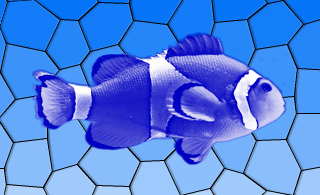- Accueil Actualités IT Pro
- Conception Cycle de vie du logiciel
- Java Plateforme et langage Java
- .NET Microsoft Framework .NET
- Dév. Web Développement Web et Webmarketing
- EDI Environnements de Développement Intégré
- Langages Langages de programmation applicatifs
- SGBD Systèmes de Gestion de Bases de Données
- Office Bureautique pour l'entreprise
- Solutions d'entreprise Autres logiciels pour l'entreprise
- Applications Applications logicielles
- Systèmes Logiciels et matériels systèmes
QGraphicsColorizeEffect Class ReferenceThe QGraphicsColorizeEffect class provides a colorize effect. More... #include <QGraphicsColorizeEffect>Inherits: QGraphicsEffect. This class was introduced in Qt 4.6. Properties
Public Functions
Public Slots
Signals
Reimplemented Protected Functions
Additional Inherited Members
Detailed DescriptionThe QGraphicsColorizeEffect class provides a colorize effect. A colorize effect renders the source with a tint of its color(). The color can be modified using the setColor() function. By default, the color is light blue (QColor(0, 0, 192)).
See also QGraphicsDropShadowEffect, QGraphicsBlurEffect, and QGraphicsOpacityEffect. Property Documentation
|
| QColor | color () const |
| void | setColor ( const QColor & c ) |
Notifier signal:
| void | colorChanged ( const QColor & color ) |
strength : qreal
This property holds the strength of the effect.
By default, the strength is 1.0. A strength 0.0 equals to no effect, while 1.0 means full colorization.
Access functions:
| qreal | strength () const |
| void | setStrength ( qreal strength ) |
Notifier signal:
| void | strengthChanged ( qreal strength ) |
Member Function Documentation
QGraphicsColorizeEffect::QGraphicsColorizeEffect ( QObject * parent = 0 )
Constructs a new QGraphicsColorizeEffect instance. The parent parameter is passed to QGraphicsEffect's constructor.
QGraphicsColorizeEffect::~QGraphicsColorizeEffect ()
Destroys the effect.
void QGraphicsColorizeEffect::colorChanged ( const QColor & color ) [signal]
This signal is emitted whenever the effect's color changes. The color parameter holds the effect's new color.
void QGraphicsColorizeEffect::draw ( QPainter * painter ) [virtual protected]
Reimplemented from QGraphicsEffect::draw().
void QGraphicsColorizeEffect::strengthChanged ( qreal strength ) [signal]
This signal is emitted whenever setStrength() changes the colorize strength property. strength contains the new strength value of the colorize effect.
© 2008-2011 Nokia Corporation and/or its subsidiaries. Nokia, Qt and their respective logos are trademarks of Nokia Corporation in Finland and/or other countries worldwide.
All other trademarks are property of their respective owners. Privacy Policy
Licensees holding valid Qt Commercial licenses may use this document in accordance with the Qt Commercial License Agreement provided with the Software or, alternatively, in accordance with the terms contained in a written agreement between you and Nokia.
Alternatively, this document may be used under the terms of the GNU Free Documentation License version 1.3 as published by the Free Software Foundation.




















